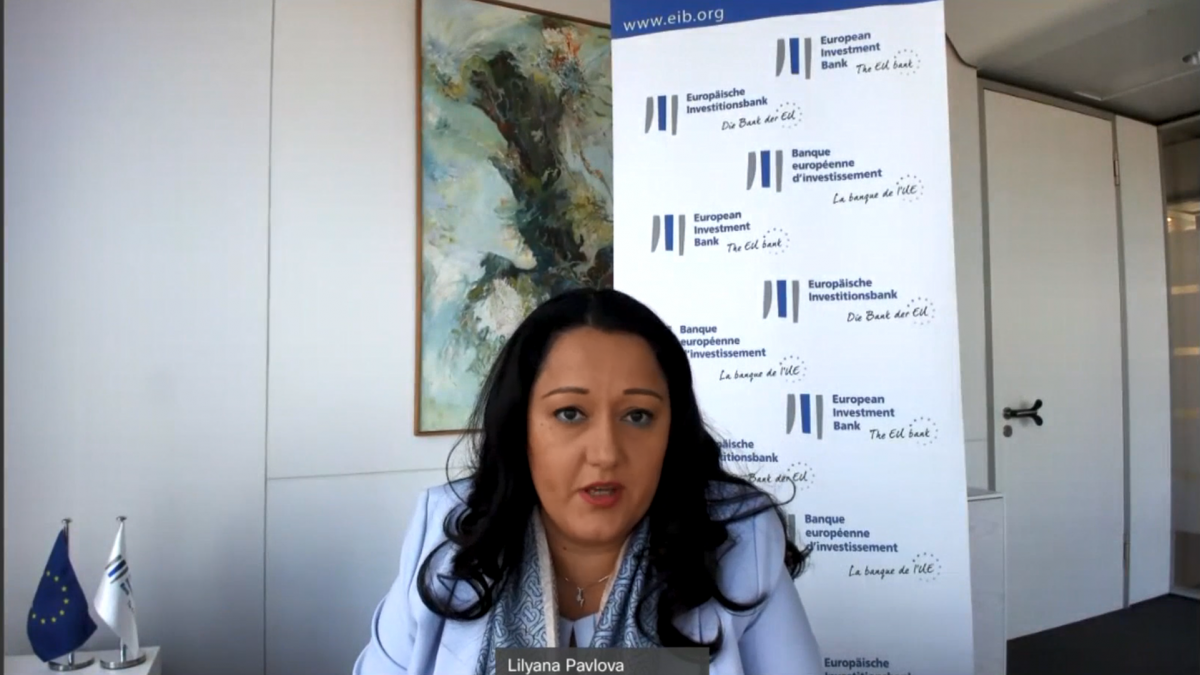• The EIB invested €853 million in the Western Balkans in 2021, supporting mobilisation of close to €3 billion of investments in the region.
• The EIB supports the fast and green recovery of the region with €1.7 billion already delivered as part of the Team Europe financial package for COVID-19.
• The Western Balkans will benefit even further from the launch of EIB Global, the EIB’s new branch established to accelerate financing and impact outside the European Union through streamlined expertise and financial support.
• In line with the European Commission’s Economic and Investment Plan and new Global Gateway, the EIB invested €257 million in sustainable projects in the region in 2021.
• The EIB provided close to €200 million to the digital sector in the region, making the EIB Group one of the major facilitators of the digital transformation in the Western Balkans.
• The EU bank invested €560 million for small and medium enterprises in 2021, which helped businesses maintain liquidity and investments, adapt, preserve and create jobs.

The European Investment Bank Group (EIB), the bank of the European Union, invested €853 million overall across the Western Balkans in 2021 for sustainable development, the green transition, digitalisation and support for small businesses. Last year, the EIB invested €560 million in small and medium enterprises helping them to recover, adapt and continue to provide employment opportunities. With close to €200 million invested in the Western Balkans’ digital sector since 2020, the EIB Group became one of the major facilitators of the digital transformation in the region. As part of Team Europe, the EIB has delivered on its commitment to inject €1.7 billion to aid faster recovery from the COVID-19 pandemic, ensuring green, digital and sustainable growth.
To expand its local presence and boost financial and technical assistance for countries outside the European Union, the EIB Group launched EIB Global — aiming to accelerate project planning and implementation through tailor-made support provided by experts on the ground. The Western Balkans can reap the benefits of EIB Global, which will also be one of the main partners of the European Commission in implementing the Global Gateway initiative.
EIB Vice-President Lilyana Pavlova, who is responsible for the Western Balkans, said: “I am extremely proud of the results achieved, which demonstrate our strong commitment under Team Europe to the green transition, digitalisation and private sector development. Our support was tangible not only in financing, but through scaling up our technical support for rolling out the Economic and Investment Plan, as well as the Green Agenda in the Western Balkans, that is going to pave the way for a cleaner environment and better living conditions. We helped the region adapt to the new digital era through unlocking substantial funds for improving digital infrastructure and skills. Now, with the launch of EIB Global, we will be in a position to react promptly, address concrete needs on the ground, and expand our partnership and know-how to countries and regions needing it the most. It opens up a new chapter and elevates our outreach outside the European Union, enabling us to steer the wheel of digitalisation, climate change action and inclusive growth even more effectively. ”
Helping SMEs sustain jobs, develop and transform
In 2021, the EIB provided €560 million for small and medium companies in the region to help maintain liquidity, continue with investments, retain jobs and create new employment opportunities. These funds were available under more affordable, long-term and flexible conditions, as part of the Team Europe financial package for faster COVID-19 recovery of the region.
The EU bank introduced new financial tools and products, such as dedicated climate action credit lines aiming to facilitate decarbonisation of companies in the region through the introduction of energy-efficient practices. Other impact finance loans are expected to be rolled out throughout the region to complement the one already signed in 2020 for Serbia in supporting firms to employ people from vulnerable social groups. Through the new Western Balkans guarantee facility and closer cooperation with our SME-dedicated subsidiary, the European Investment Fund (EIF), we expect to step up our support for private sector development.
The EIB increased support for climate action and environmental sustainability in the Western Balkans
As the EU climate bank, the EIB scaled up its technical and financial support to focus on the preparation and implementation of climate and sustainable projects, in line with the Economic and Investment Plan. In 2021, it unlocked a total of €257 million for environmental protection, more secure and efficient energy networks, sustainable transportation and the introduction of climate-friendly projects among small companies. EIB funding was made available to support the construction of a wastewater treatment plant in Mitrovica, and water distribution systems in Tirana, as well as in the municipalities of Jajce and Zvornik, which will provide access to drinking water and sanitation services to over 1 million people in the region. The EIB funding will also strengthen energy networks in South East Europe with the introduction of secure, diverse and efficient supply.
EIB investments signed in 2021 enabled the modernisation of urban transportation in the Canton of Sarajevo, which is designed to help tackle traffic congestion and reduce air pollution. Regarding our plans, the EIB is already working together with the European Commission and other key partners on ways to increase its technical support for projects that support the Green Agenda’s goal.
Facilitating a digital transformation
With €200 million invested in digital projects in the region since 2020, the EIB enabled smart, resilient and inclusive growth in the region. EIB investments address the region’s digital gap and allow upgrades to the existing 4G network and introduction of the 5G network, as well as digitalisation of over 1 500 schools and development of digital skills. In the longer term, it will increase business productivity, the efficiency of public institutions and employability of youth in the context of the new digital era.